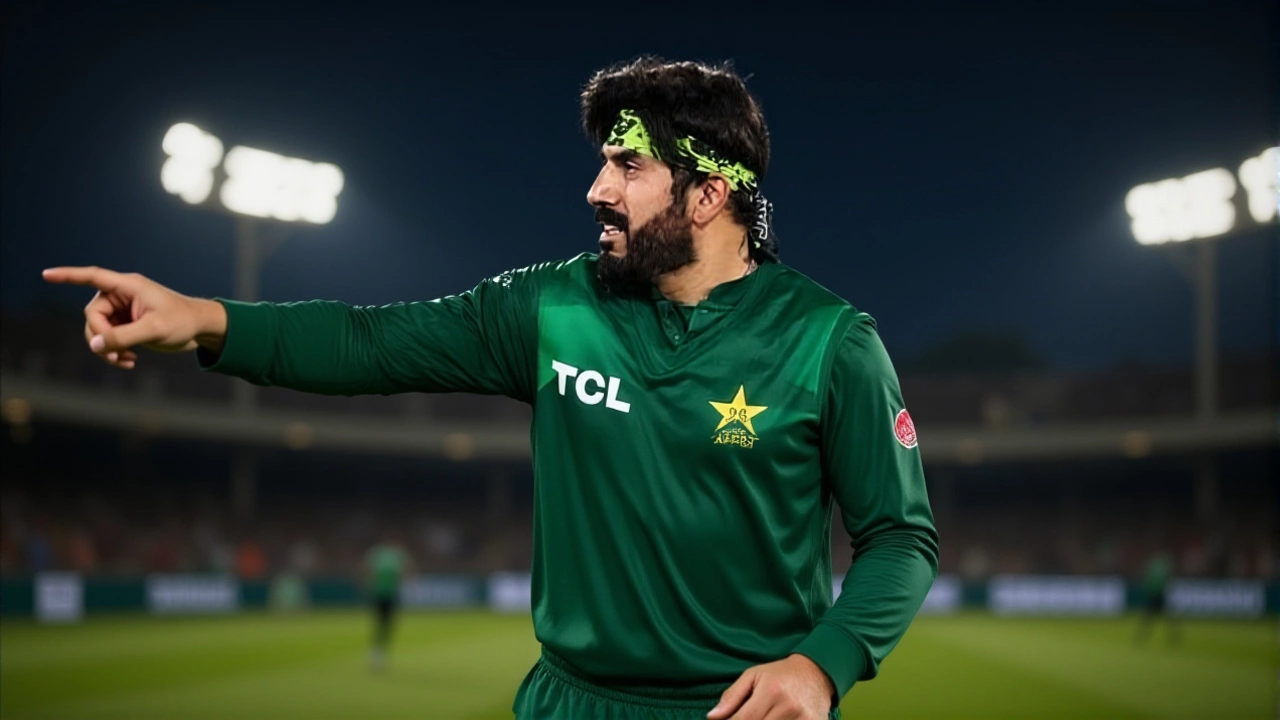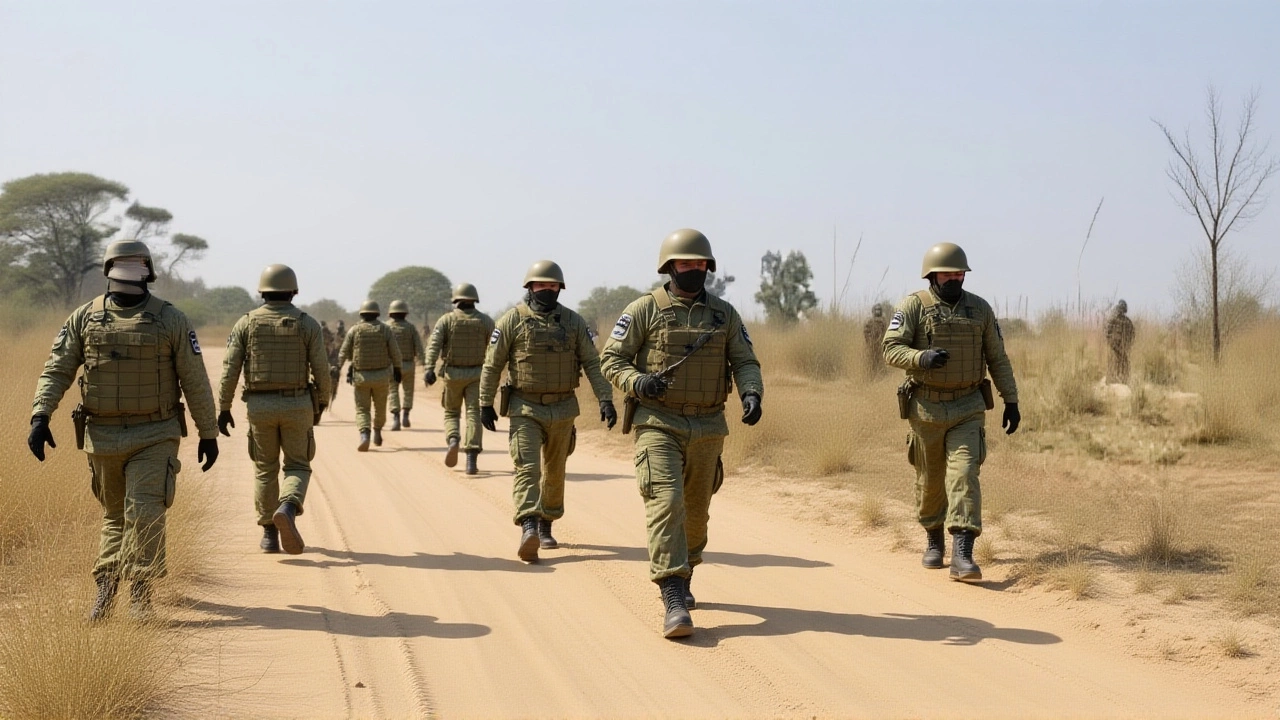When Pakistan’s Geo TV claimed in late November 2025 that Indian Rafale fighter jets had been shot down in a May air battle — citing a fictional statement from French Navy Captain Jacques Launey — France’s Marine nationale didn’t just deny it. They exploded the lie. On November 22, 2025, the official Twitter account @MarineNationale dropped a terse, devastating rebuke: "#FAKENEWS] These statements were attributed to Captain Launay who never gave his consent for any form of publication. The article contains extensive misinformation and disinformation." It wasn’t just a correction. It was a takedown.
How the Lie Was Built
The false report, published on November 21, 2025, by Geo TV and authored by Pakistani journalist Hamid Mir, painted a cinematic narrative: in early May 2025, during a massive aerial clash involving over 140 fighter jets, Pakistan’s air force had achieved "air superiority" over India. According to the article, Captain Launey — a real French naval officer — had allegedly praised Pakistan’s performance, specifically crediting Chinese J-10C fighters for downing multiple Rafales. The headline? "French Commander Confirms Pakistan’s Air Superiority Over India in May 2025 Battle." But here’s the twist: Captain Launey has never served in the French Air Force. He’s a naval aviator. And he’s never publicly commented on India-Pakistan air combat — because no such battle occurred. The entire scenario was fiction, stitched together from half-truths, misattributed quotes, and outright fabrication.The Real Context: Operation Sindoor
The disinformation didn’t emerge in a vacuum. It followed the horrific October 2025 terrorist attack in Pahalgam, Jammu & Kashmir, which killed 26 civilians. In response, India launched Operation Sindoor — a targeted military operation involving precision strikes by Rafale jets, reportedly hitting terror infrastructure across the Line of Control. The Rafales, with their Meteor missiles and advanced sensors, played a central role. Their performance was widely praised in Indian media and by defense analysts. Pakistan’s media, however, pivoted to damage control. Instead of acknowledging India’s operational success, they fabricated a narrative of defeat. If the Rafales were downed, then India’s victory was hollow. If China’s J-10Cs were responsible, then Pakistan’s alliance with Beijing looked even stronger. The story wasn’t about facts — it was about optics.France’s Unmistakable Rebuttal
The Marine nationale’s statement was a masterclass in diplomatic clarity. No hedging. No diplomatic doublespeak. Just cold, hard facts: Jacques Launey never spoke to anyone about this. He didn’t authorize any quotes. He didn’t give interviews to Geo TV. And crucially, he never compared the Rafale to the J-10C — because that’s not his domain. The French Navy doesn’t operate fighter jets; the French Air and Space Force does. The French defense establishment had already been monitoring the false narrative. Multiple French defense analysts had privately dismissed the report as "a crude propaganda stunt." But the Marine nationale’s public statement was unprecedented. It wasn’t just about protecting Launey’s reputation. It was about defending the integrity of the Rafale — a fighter jet designed by Dassault Aviation and exported to India under a €7.87 billion deal signed in 2016. The first Rafales arrived in India on July 29, 2020. Since then, they’ve been central to India’s airpower modernization.Why This Matters Beyond the News Cycle
This isn’t just about one fake news story. It’s about the weaponization of information in modern warfare. Pakistan’s state-aligned media has a long history of fabricating battlefield victories — from the 2019 Balakot incident to the 2023 Kargil anniversary claims. But this time, they picked a target with global credibility: a French officer, a French jet, and a French institution. France’s response was swift and sharp because the Rafale isn’t just a weapon. It’s a symbol of European defense sovereignty. When false claims about its performance spread, it undermines not just India’s military credibility, but also France’s reputation as a reliable defense partner. And when China’s J-10C is dragged into the lie — despite no evidence of Chinese jets being involved in any India-Pakistan clash — it reveals a deeper game: using disinformation to inflate Beijing’s military influence in South Asia.
India’s Silent Strength
While Indian officials didn’t issue a formal statement, the silence spoke volumes. The Indian Air Force didn’t need to respond. The Rafales were never grounded. No wreckage was recovered. No pilot was reported missing. And most importantly — the French Navy didn’t just deny the lie. They exposed its origin. That’s more powerful than any press release. American defense analysts, including those at the Center for Strategic and International Studies, noted in a December 2025 report that China has increasingly provided Pakistan with "information warfare support," including fabricated battlefield footage and manipulated audio clips. This Rafale disinformation campaign fits that pattern perfectly.What’s Next?
The fallout is already visible. International media outlets — from Reuters to BBC — have flagged the Geo TV report as unverified. Independent fact-checkers in South Asia are now cross-referencing every future claim about aerial engagements with open-source intelligence. Meanwhile, India has quietly accelerated its Rafale training program, adding new electronic warfare modules to its fleet. France, for its part, has signaled it may offer joint intelligence briefings to allied air forces to preempt future disinformation. The Rafale didn’t need to prove itself in battle. It proved itself in truth.Frequently Asked Questions
Was there really an air battle between India and Pakistan in May 2025?
No credible evidence supports the existence of a large-scale air battle in May 2025. India’s Ministry of Defence confirmed no aerial engagements occurred during that period. The so-called "140-jet clash" described by Geo TV has been dismissed by independent defense analysts as implausible given radar coverage limitations and no corroborating satellite or radar data. The entire scenario was fabricated.
Who is Captain Jacques Launey, and why was he targeted?
Captain Jacques Launey is a French Navy aviator assigned to the aircraft carrier Charles de Gaulle. He has no connection to fighter jet operations in South Asia. His name was likely chosen because he’s a real person with a public profile, making the lie seem more credible. The French Navy confirmed he never gave interviews to Pakistani media and had no knowledge of the fabricated quote.
Did China’s J-10C jets participate in any India-Pakistan conflict?
There is zero verified evidence that Chinese J-10C fighters were deployed in any India-Pakistan conflict. China maintains a policy of non-intervention in bilateral South Asian disputes. While Pakistan operates J-10Cs, they’ve never been seen in combat over Kashmir. The claim that they downed Rafales is pure fiction — likely designed to elevate China’s military image and deepen Indo-Pak hostility.
How many Rafale jets does India operate, and have any been lost?
India operates 36 Rafale jets, all delivered between 2020 and 2022. As of December 2025, none have been lost in combat or operational accidents. The Indian Air Force has publicly confirmed all aircraft are mission-ready. The claim that multiple Rafales were "shot down" during Operation Sindoor is entirely false, as confirmed by French and Indian defense sources.
Why did France respond so strongly?
France has a strategic interest in protecting the Rafale’s global reputation. India is its largest defense export market, and false claims about the jet’s performance could deter other buyers like Egypt, Greece, or Qatar. France also sees disinformation as a security threat — especially when it targets allied nations. Their public rebuke was both a defense of their product and a warning to other actors.

Write a comment